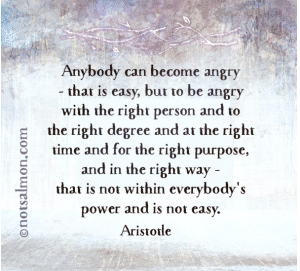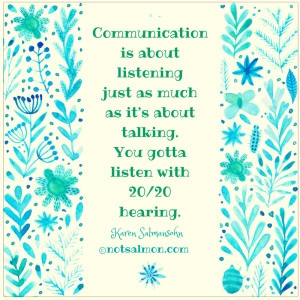 Are you trying to figure out how to contest a will? If yes, you need to check out some of our best tips by clicking right here.
Are you trying to figure out how to contest a will? If yes, you need to check out some of our best tips by clicking right here.
When it comes to leaving a legacy, most people choose to draw up a detailed will.
Unfortunately, only 18 percent of adults over 55 have an established estate plan. And their wills aren’t always clear or fair in how assets get distributed among beneficiaries.
If you find yourself feeling left out or underwhelmed with your inheritance, there may be something you can do. You can always dispute the will.
How to Contest a Will: 7 Key Tips to Know
There’s more to learning how to contest a will than just mentioning your concerns to the estate executor. Here are a few tips to keep in mind when you start the process.
1. Make Sure You Have a Case
 Before you can start figuring out how to contest a will, you need to make sure you have a case. Remember, you can’t dispute a will just because you disagree with it. You must be able to prove that something happened with the will that makes it invalid.
Before you can start figuring out how to contest a will, you need to make sure you have a case. Remember, you can’t dispute a will just because you disagree with it. You must be able to prove that something happened with the will that makes it invalid.
You’ll need to be able to show that the person who passed away agreed to the will under duress or illustrate that the current will wasn’t signed the right way. If there’s another will in place, you’ll need to show that the alternate will is the most recent version.
Dissatisfaction with your inheritance isn’t going to be enough to help you successfully contest a will. Additionally, you must be the one impacted by the will’s current provisions. You can’t file on behalf of another person. And your name must get mentioned in a previous version of the will in question.
2. Speak With an Attorney A.S.A.P.
 When it comes to learning how to dispute a will successfully, you need to be willing to act as fast as possible. This means speaking with an attorney as soon as you think you might have a case.
When it comes to learning how to dispute a will successfully, you need to be willing to act as fast as possible. This means speaking with an attorney as soon as you think you might have a case.
Ideally, you’ll want to start the dispute before the deceased person’s estate gets distributed to the named beneficiaries. Otherwise, you could end up dealing with delays or miss out on the window to contest the will entirely.
If you’re not sure who to turn to, start by speaking with an experienced estate lawyer. They’ll be able to review your case, the will in question, and help you determine the next steps.
The sooner you start, the better off you’ll be and the more likely you are to be successful when dealing with a conflict over a will.
3. Consider Your Finances
 Before you start contesting anything, you need to look at your personal finances. You’re going to have to pay for an attorney and cover court costs and fees every step of the way.
Before you start contesting anything, you need to look at your personal finances. You’re going to have to pay for an attorney and cover court costs and fees every step of the way.
Depending on the complexity of the case, this could end up costing you thousands of dollars.
Make sure you’re able to afford those fees and get estimates from your attorney before you agree to work with them. If the fees are too high, you may want to drop your case.
Remember, you need to make sure the stressful emotions and financial burden of contesting a will is worth it before you submit your petition. The settlement you receive if you’re successful may not be enough to cover the fees you’ll pay in the process.
4. Think About the Repercussions
 When you’re considering how to fight a will, you need to do more than just learn the process. You need to think about how your fight will impact the people you love.
When you’re considering how to fight a will, you need to do more than just learn the process. You need to think about how your fight will impact the people you love.
It’s common for those contesting wills to end up on bad terms with the rest of their family and the other beneficiaries named in the will.
If you’re looking to preserve your relationship with your relatives, contesting the will may not be in your best interest.
You’ll also want to prepare for the emotional ups and downs associated with contesting wills. In most cases, the other beneficiaries will fight back and may end up trying to damage your reputation. Weigh all of the possible repercussions and make sure it’s in your best interest to contest the will.
If it’s not or you’re not willing to deal with potential conflict, you may want to drop your case.
5. Be Willing to Communicate With Family
 Whenever possible, try to keep the lines of communication open with your family members. It’s normal for them to respond to your will contest negatively at first, but that doesn’t mean you should respond in-kind.
Whenever possible, try to keep the lines of communication open with your family members. It’s normal for them to respond to your will contest negatively at first, but that doesn’t mean you should respond in-kind.
Remember, it’s not necessarily their fault that your inheritance wasn’t what you expected.
When in doubt, be patient, calm, and try to be understanding. This can help your family better come to terms with what’s going on and makes it easier for you to save your relationship in the long-run.
6. Get Your Evidence Together
 Part of every will dispute means gathering evidence to show that your inheritance (or lack thereof) is not appropriate. Written documents are the most successful pieces of evidence.
Part of every will dispute means gathering evidence to show that your inheritance (or lack thereof) is not appropriate. Written documents are the most successful pieces of evidence.
If you have a more recent will in your possession, make sure you bring it to your attorney’s attention. If you don’t, go through your personal communications with your loved one and see if you have any written documentation about the inheritance.
Emails with time stamps and other written documents are all great options. Compile that evidence and give it to your attorney so they can prepare your contest quickly.
7. Don’t Hesitate to Settle
 It’s rare that contested wills go all the way to court. Instead, most families prefer to settle out of court.
It’s rare that contested wills go all the way to court. Instead, most families prefer to settle out of court.
If you’re offered a settlement, be willing to at least consider it. Remember, you’ll end up paying more to take the case to court. The sooner you can get the money you’re owed, the better off you’ll be.
Understanding How to Contest a Will Is Just the Beginning
Making the decision to dispute a will isn’t easy and it can be emotionally tiring. Keep these tips in mind when learning how to contest a will and you’ll be on the right track.
Just make sure that contesting the will is in your best interest. If you’re unsure or don’t know if you have a case, schedule a consultation with your attorney to see if it’s in your best interest.
Dealing with Toxic Loved Ones?
Get tools to manage and disarm difficult people in my video course!
I’ll show you how to communicate more successfully with a variety of challenging personality types in my video training! Learn more here!
Think happier. Think calmer.
Think about subscribing for free weekly tools here.
No SPAM, ever! Read the Privacy Policy for more information.
One last step!
Please go to your inbox and click the confirmation link we just emailed you so you can start to get your free weekly NotSalmon Happiness Tools! Plus, you’ll immediately receive a chunklette of Karen’s bestselling Bounce Back Book!


 Are you trying to figure out how to contest a will? If yes, you need to check out some of our best tips by clicking right here.
Are you trying to figure out how to contest a will? If yes, you need to check out some of our best tips by clicking right here. Before you can start figuring out how to contest a will, you need to make sure you have a case. Remember, you can’t dispute a will just because you disagree with it. You must be able to prove that something happened with the will that makes it invalid.
Before you can start figuring out how to contest a will, you need to make sure you have a case. Remember, you can’t dispute a will just because you disagree with it. You must be able to prove that something happened with the will that makes it invalid. When it comes to learning how to dispute a will successfully, you need to be willing to act as fast as possible. This means speaking with an attorney as soon as you think you might have a case.
When it comes to learning how to dispute a will successfully, you need to be willing to act as fast as possible. This means speaking with an attorney as soon as you think you might have a case. Before you start contesting anything, you need to look at your personal finances. You’re going to have to pay for an attorney and cover court costs and fees every step of the way.
Before you start contesting anything, you need to look at your personal finances. You’re going to have to pay for an attorney and cover court costs and fees every step of the way. When you’re considering how to fight a will, you need to do more than just learn the process. You need to think about how your fight will impact the people you love.
When you’re considering how to fight a will, you need to do more than just learn the process. You need to think about how your fight will impact the people you love. Whenever possible, try to
Whenever possible, try to  Part of every will dispute means gathering evidence to show that your inheritance (or lack thereof) is not appropriate. Written documents are the most successful pieces of evidence.
Part of every will dispute means gathering evidence to show that your inheritance (or lack thereof) is not appropriate. Written documents are the most successful pieces of evidence. It’s rare that contested wills go all the way to court. Instead, most families prefer to settle out of court.
It’s rare that contested wills go all the way to court. Instead, most families prefer to settle out of court.